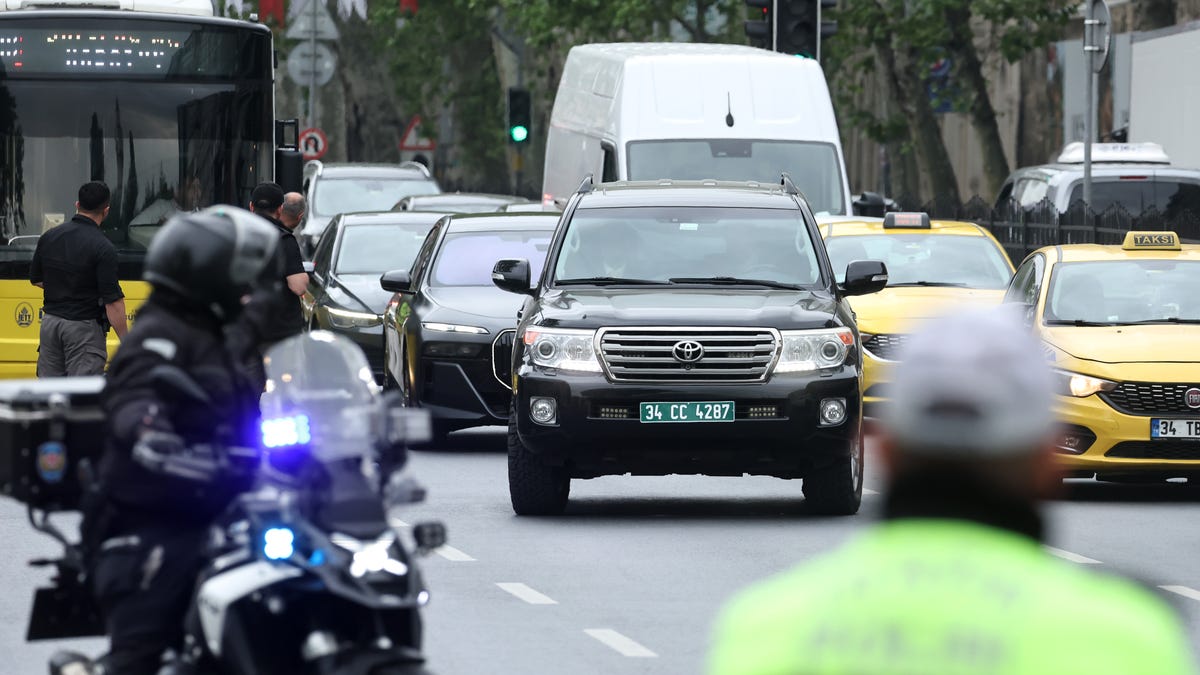ISTANBUL, May 16 (Reuters) – Russian and Ukrainian negotiators were in Istanbul on Friday for what was billed as their first direct peace talks in more than three years, under pressure from U.S. President Donald Trump to end Europe’s deadliest conflict since World War Two.
The encounter anticipated at the Dolmabahce Palace on the Bosphorus would be a sign of diplomatic progress between the warring sides, who had not met face-to-face since March 2022, the month following Russia’s invasion.
Expectations for a major breakthrough, already low, were dented further on Thursday when Trump said there would be no movement without a meeting between himself and Russia’s President Vladimir Putin.
Trump, winding up a Middle East tour and heading back to Washington, said on Friday he would meet the Russian leader “as soon as we can set it up”.
In Istanbul, a Reuters reporter saw the first vehicles arriving at the talks venue, including white minibuses and several black cars.
Putin on Sunday proposed direct talks with Ukraine in Turkey, but has spurned a challenge from Ukrainian President Volodymyr Zelenskyy to meet him in person, and instead has sent a team of mid-ranking officials to the talks.
Zelenskyy said Putin’s decision not to attend but to send what he called a “decorative” lineup showed the Russian leader was not serious about ending the war. Russia accused Ukraine of trying “to put on a show” around the talks.
U.S. Secretary of State Marco Rubio, who also flew to Istanbul on Friday, told reporters the night before that, based on the level of the negotiating teams, a major breakthrough was unlikely.
“I hope I’m wrong. I hope I’m 100% wrong. I hope tomorrow the news says they’ve agreed to a ceasefire; they’ve agreed to enter serious negotiations. But I’m just giving you my assessment, honestly,” he said.
Russia says it sees the talks as a continuation of the negotiations that took place in the early weeks of the war in 2022, also in Istanbul.
But the terms under discussion then, when Ukraine was still reeling from Russia’s initial invasion, would be deeply disadvantageous to Kyiv. They included a demand by Moscow for large cuts to the size of Ukraine’s military.
With Russian forces now in control of close to a fifth of Ukraine, Putin has held fast to his longstanding demands for Kyiv to cede territory, abandon its NATO membership ambitions and become a neutral country.
Ukraine rejects these terms as tantamount to capitulation, and is seeking guarantees of its future security from world powers, especially the United States.
(Reporting by Can Sezer, Humeyra Pamuk, Tom Balmforth and Vladimir Soldatkin in Istanbul, Olena Harmash in Kyiv, Ece Toksabay in Ankara and Reuters reporters in MoscowWriting by Mark TrevelyanEditing by Peter Graff)
